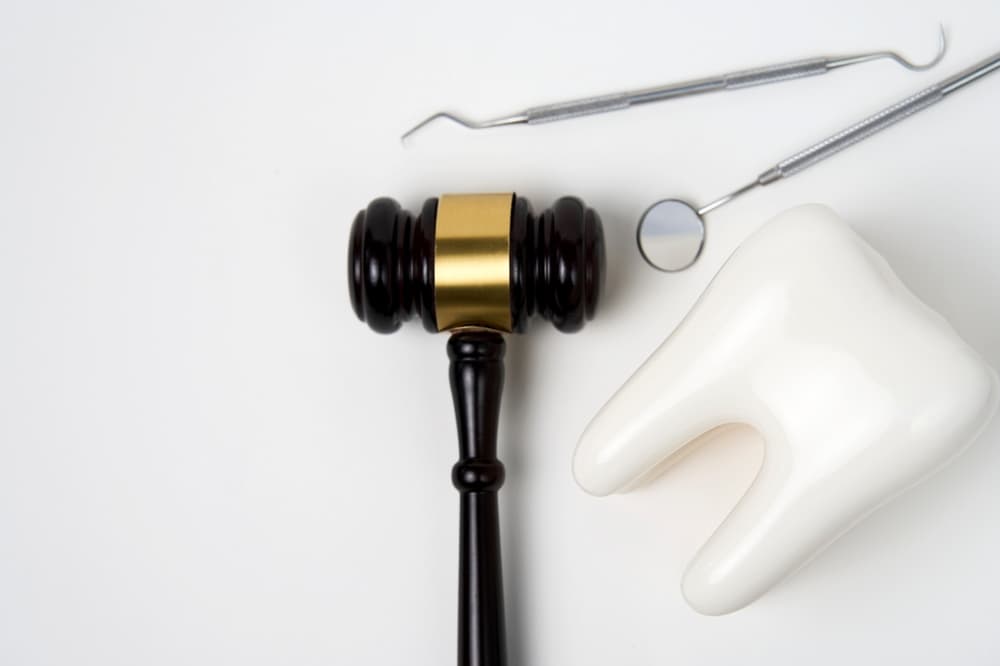Why Do Dental Partnerships Fail?
Finding the right dental partner is important for any dentist looking to grow their practice or transition into group practice. A strong dental partnership can lead to greater efficiency, shared costs, and the ability to provide more comprehensive care to patients. However, many dental partnerships fail, often due to avoidable mistakes and oversights.
Often, working with an experienced dental partnership agreement lawyer can benefit these complex business relationships.
The Importance of a Well-Crafted Partnership Agreement

One of the most common reasons that dental partnerships fail is the lack of a clear, comprehensive partnership agreement.
A partnership agreement is a legally binding contract that outlines each partner’s roles, responsibilities, and expectations. It should cover key issues such as decision-making authority, profit-sharing, ownership stakes, dispute resolution, and exit strategies.
Without a well-written partnership agreement in place, misunderstandings and conflicts are almost inevitable. Partners may have different visions for the practice, leading to disagreements over major decisions like expanding to new locations, investing in new technology, or bringing on associates. They may also have differing expectations around their level of involvement in day-to-day operations and patient care.
An experienced dentist attorney can work with you and your partners to draft a customized partnership agreement that addresses your unique needs and goals. An attorney can weigh potential issues and include provisions to prevent or mitigate conflicts down the road. With a solid legal foundation, you’ll be in a much stronger position to build a successful, long-lasting partnership.
Failing to Plan for the Future
Another mistake that often dooms dental partnerships is a failure to plan for the future.
Even if partners start on the same page, their circumstances and objectives may change over time. One partner may decide they want to slow down and transition toward retirement, while the other is still focused on aggressive growth.
A partner might face unexpected health issues or family obligations that limit their ability to practice.
The partnership can quickly become strained without a clear roadmap for handling these transitions. The partner who wants to scale back may feel like they are being pressured to maintain an unsustainable pace, while the growth-oriented partner may become frustrated by a lack of alignment and commitment to shared goals.
A skilled dentist lawyer can create a comprehensive succession plan that accounts for various contingencies and ensures a smooth transition as partners’ roles and involvement levels evolve.
They can also assist with drafting buy-sell agreements that provide a clear process for a partner to exit the practice and be fairly compensated for their ownership stake.
Misaligned Values and Philosophies

Dental partnerships also frequently run into trouble due to mismatched values and philosophies between partners. Even if partners have compatible long-term visions, they may butt heads in terms of their approaches to patient care, practice management, and team leadership.
For example, one partner may prioritize using the most advanced technology and techniques to deliver the highest level of care, even if it comes at a premium price point. The other partner may prefer a more value-oriented model focused on basic preventive and restorative care to keep overhead low and serve more patients.
Diverging clinical philosophies can breed resentment if one partner feels the other’s treatment planning negatively impacts practice profitability. Different attitudes toward team management, such as whether to offer more generous benefits and perks to attract top talent, can also drive a wedge between partners.
To avoid a culture clash, prospective partners must discuss their values, philosophies, and attitudes to ensure compatibility. A knowledgeable dental business attorney can help facilitate these conversations and spot potential areas of misalignment that might cause friction.
Ambiguity Around Roles and Responsibilities
Dental partnerships also commonly dissolve due to confusion and conflict around partners’ roles and responsibilities. In theory, a partnership allows dentists to divide duties and leverage each other’s strengths. In practice, ill-defined roles often lead to partners stepping on each other’s toes or important tasks falling through the cracks.
For the partnership to thrive, clarity must surround areas like:
- Division of clinical responsibilities (e.g., types of procedures each partner will perform, how new patients will be allocated)
- Practice management duties (e.g., managing staff, overseeing billing and collections, marketing the practice)
- Administrative functions (e.g., ordering supplies, maintaining equipment, record keeping)
- Strategic planning (e.g., evaluating potential partnerships, developing new service lines)
Partners may have different expectations about how much time they’ll spend on non-clinical activities. If these aren’t discussed and agreed upon upfront, some partners may feel like they are shouldering an unfair share of the management burden while others focus solely on patient care.
An experienced dental lawyer can help you create comprehensive job descriptions for each partner that clearly delineate responsibilities and authorities. They can also advise on establishing effective governance structures and communication channels to keep all partners informed and engaged.
Financial Disputes and Mismanagement
Money is frequently at the heart of failed dental partnerships. Partners may disagree on fundamental issues like compensation structures, expense allocation, and reinvestment in the practice. When partners feel they are being underpaid or that profits are being misused, resentment can quickly poison the relationship.
Some common financial flashpoints include:
- How to divide owner draws and allocate profits
- Whether to take on debt to finance practice improvements or expansion
- Setting associate dentist and staff compensation
- Spending on marketing, technology, and continuing education
- Real estate ownership and leasing costs
If partners have significantly different levels of experience, production, or time commitment to the practice, an equal split of profits may not feel equitable. When the practice isn’t as profitable as expected, partners may clash on how to boost revenues or cut costs.
Financial tensions grow when partners lack visibility into practice performance. If one partner is primarily responsible for overseeing billing, collections, and payables, the others may harbor doubts about proper fund management.
A skilled dental attorney can establish fair and transparent financial systems that give all partners confidence in the numbers. They can work with you to create compensation models that incentivize productivity while rewarding partners’ varying contributions.
Hiring an attorney can also demonstrate to potential partners that you are committed to proper financial stewardship.
Failure to Seek Timely Legal Counsel

Perhaps the biggest reason many dental partnerships fail is that the dentists involved don’t hire qualified legal counsel soon enough. They may create a rudimentary partnership agreement together or rely on a generic template that doesn’t fit their situation. Excited to get their new venture off the ground, they may gloss over critical issues that can turn into serious sticking points down the line.
When tensions boil over and the partners end up in a dispute, the practice may already have found itself on shaky financial and operational ground. The absence of a clear process for conflict resolution can make it tough to get back on track.
If the partnership deteriorates to the point of dissolution, the lack of an agreed-upon valuation and buyout procedure often leads to a long, costly legal battle.
The smartest step dentists can take to avoid partnership pitfalls is to retain an experienced dental business attorney from the very start.
A good lawyer will act as an objective third party to help partners think through all aspects of structuring their business, from choice of entity to exit clauses. They can spot issues the partners may not have considered and propose solutions to ward off future conflicts.
Throughout the life of the partnership, a dental lawyer can serve as an advisor on everything from regulatory compliance to growth initiatives.
Finding a Dental Lawyer You Can Trust
Not all business attorneys have specific experience in the dental industry. Dental practices have unique dynamics and are subject to complex regulations, so work with a lawyer who understands the profession.
Look for an attorney with a track record of advising dentists on partnership agreements, MSO structures, practice sales and acquisitions, employment contracts, and other key transactions. A good dental lawyer will take the time to learn about your individual needs and goals and provide tailored guidance to help you achieve them.
If you are considering forming a dental partnership or experiencing challenges in an existing one, the smartest move is to speak with a knowledgeable dental business attorney as soon as possible. Reach out to put your partnership on a path to lasting success and security.
